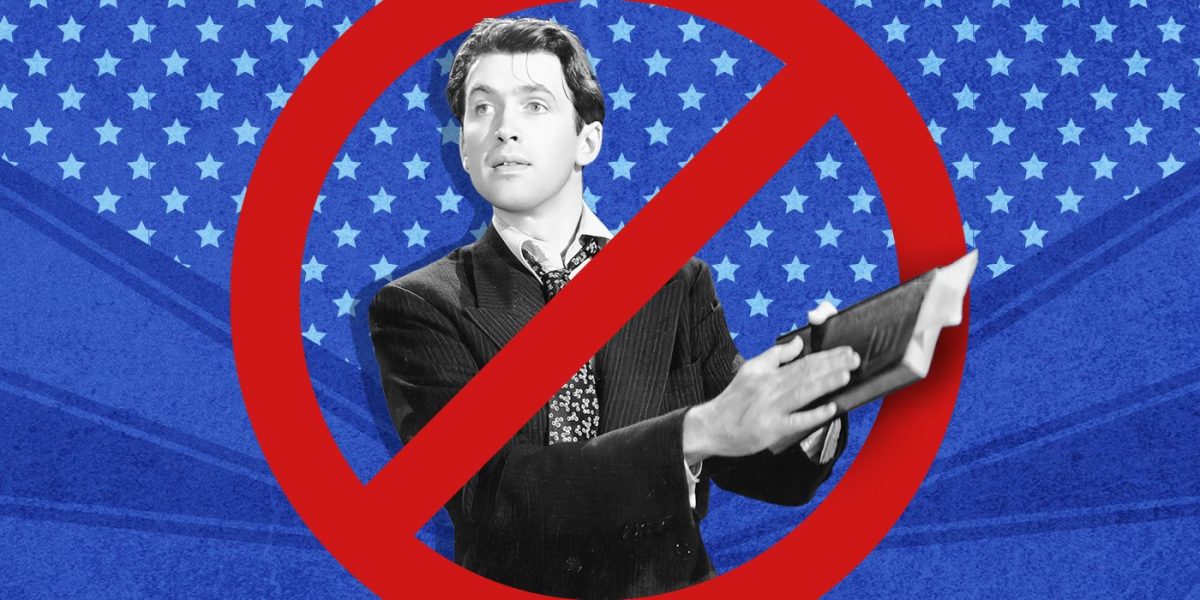
The James Stewart Film That Was Banned Overseas
Nov 28, 2023
The Big Picture
Mr. Smith Goes to Washington showcases the impact of corruption on American politics and the importance of standing up for what is right. The film’s message of democracy and equal justice for all Americans posed a threat to fascist governments like Nazi Germany and Italy, leading them to ban its screening. Movies, like Mr. Smith Goes to Washington, have the ability to educate and expose audiences to important social and political issues, making them a potent tool for change.
Our country is founded on the belief that democracy is the best way to make citizens feel involved and represented, and politicians should stand for the best interests of the people. Regrettably, fascists do not believe this, as they only believe in power and subjugation of those they see as beneath them. With that in mind, it would be most unfortunate for a country run by fascists to let its people see a film that happens to prove how powerful and fair democracy can be, as that would give them certain ideas. It’s been a while since an American film has been met with this kind of pushback, and one of the most notable instances of this happening involved one of the best films of Frank Capra that was begging to be targeted by fascists: Mr. Smith Goes to Washington starring James Stewart.
Mr. Smith Goes to Washington A naive youth leader is appointed to fill a vacancy in the U.S. Senate. His idealistic plans promptly collide with corruption at home and subterfuge from his hero in Washington, but he tries to forge ahead despite attacks on his character. Release Date October 9, 1939 Director Frank Capra Cast James Stewart, Jean Arthur, Claude Rains, Edward Arnold Runtime 129 minutes Genres Comedy, Drama
What Is ‘Mr. Smith Goes to Washington’ About?
This film stars James Stewart as Jefferson Smith, leader of the Boy Rangers, and he’s been selected to be a U.S. senator, despite his lack of government experience. He was chosen because he was seen as notably naive in the ways of the political world, and corrupt politicians in the U.S. government wanted to use his naivety to manipulate him. To do so, he is put under the mentorship of Senator Joseph Paine (Claude Rains), who is highly respected yet secretly just as corrupt as the people who put Smith in power. Most of the plot is dedicated to Smith wanting to pass a bill that will grant him a loan to build a national park for Boy Scouts. What he doesn’t know is that it’s actually a scam and the corrupt politicians will just suck up the money, and Paine is in on it. Having been painted as a rube by the press due to his honest demeanor, Smith must prove he’s made of the right stuff and stand up for what’s right.
This culminates in not only the most famous part of the film but arguably its most prescient in the battle for America’s soul that would come a generation later. Once Jefferson is made aware of the bill’s actual purpose, he launches into a 25-hour filibuster to expose it. His speech preaches the fundamental principles of democracy and equal justice for all Americans, that there’s no room for “compromise with human liberties”, and that if the grown-ups of the world have corrupted these ideals, then it’s up to the next generation of kids to undo the corruption. It’s a speech so rousing in its emotional impact that it compels Paine to oust himself as a crook and justice reigns supreme. The film’s ending is quite rushed, and you literally have no idea what happened to the bill or what will happen to Smith’s career, but the film goes out on a high note that loudly and proudly affirms its political agenda. It did it so effectively, that certain other world powers took notice and started getting really uncomfortable.
Italy and Germany Wanted To Ban ‘Mr. Smith Goes to Washington’
Image via The Academy of Motion Pictures and Science
In an interview with radio station WAMU 88.5, film historian Mike Canning describes how, when the film premiered in Washington, D.C. on October 17, 1939, the film was seen by up to 45 American senators in a packed audience. If Frank Capra is to be believed, “roughly a third of the audience had left by the time the movie was over”, and the few that stuck around had nothing to say to Capra. Although the film isn’t necessarily saying that all senators are bad by underlining those that are proven to be corrupted, Capra alleged that it still bruised their egos enough for them to prevent the film’s release. Why would a group of “proper gentlemen” do such a thing? At the time, the government was still mulling over whether to enter World War II, as Poland had just been invaded by the Nazis. It’s not the most comforting idea that a major American film is telling the public that American politics is less about doing what’s best for its citizens and more about how politicians “have to go along to get along” and strategically choose what passes.
What’s worse than an allegedly democratic government being exposed as full of rampant corruption? A factually fascist government trying to suppress its people from being shown what a hollow lie their philosophy is. While there isn’t much external record to back this claim up, Canning claims that the governments of Nazi Germany and Italy, led by Adolf Hitler and Benito Mussolini respectively, banned Mr. Smith Goes to Washington from being shown in German and Italian theaters. He reasons that they did this because “they didn’t want to show anything about American democracy. Even though there was corruption, it showed freedom triumphs, liberty triumphs, and the single man can do something.” In other words, fascist leaders were smart enough to know that this film was potent enough in its political commentary to change people’s minds about the state of the government they lived under. The leaders needed to keep their people under the spell that their system was a beneficial idea.
Movies Like ‘Mr. Smith Goes to Washington’ Have the Power To Change Minds
Cinema is built and propagated on the idea that it can serve as more than just escapist entertainment, that any film can be an instrument through which an audience can be educated or exposed to something they hadn’t had an awareness of before. That’s why continuing to fight for concepts like increased diverse representation in film is so important, and why so many internet fascists will never stop crying about it in our current film landscape. To effectively portray a concept or a group of people onscreen is to legitimize it, and fascists can’t bear the idea of liberal politics and non-majority people being represented fairly in the media, as it’ll expose how false their philosophy is. Films like Mr. Smith Goes to Washington need to continue to exist and be made, if for no other reason than to keep fascists scared of the ever-present truth that enough people following Jefferson Smith’s example can stop them.
Mr. Smith Goes to Washington can be rented on Prime Video.
Watch on Prime Video
Publisher: Source link
20 Best Dressed Men At The 2025 Golden Globes
20 Best Dressed Men At The 2025 Golden Globes The televised portion of awards season is here! On Sunday night, the Golden Globes were held in Los Angeles, kicking off what looks to be a lively next several months of…
Jan 8, 2025
Tom Cruise & Nicole Kidman’s Son Connor Shares 2025 Update in New Pic
Tom Cruise and Nicole Kidman's Son Connor Cruise Golfs With Crocodile in New PostTom Cruise and Nicole Kidman's son is teeing up for a great year. Connor Cruise recently kicked off 2025 at the links, swinging by Lost City Golf…
Jan 8, 2025
Celebrities With Their Own Companies
Celebrities With Their Own Companies Whether you aspire to be an actor or musician, getting the shot at a big break is hard enough. But managing to make a career outside of what you were already famous for? Now that's…
Jan 7, 2025
Jennifer Lopez Reunites With Ex Ben Affleck at His Home
Jennifer Lopez & Ben Affleck Reunite at His L.A. Home Amid EstrangementThis is a pair of friendly exes...now. Less than five months after filing for divorce from estranged husband Ben Affleck, Jennifer Lopez reunited with the two-time Oscar winner at…
Jan 7, 2025











